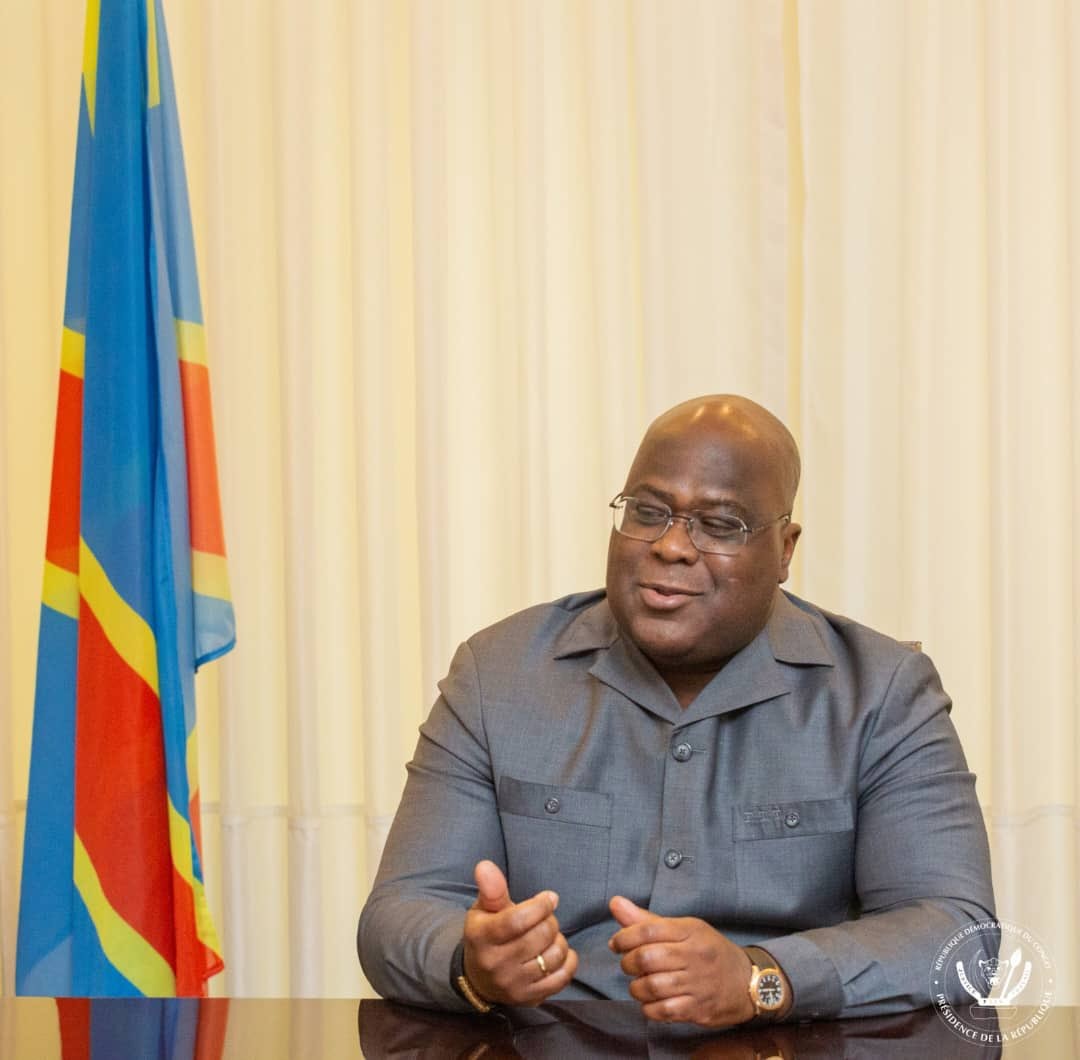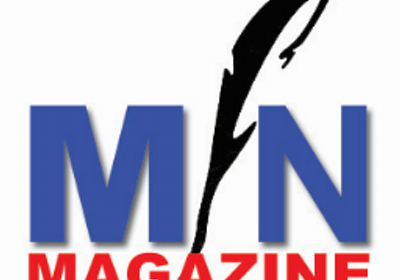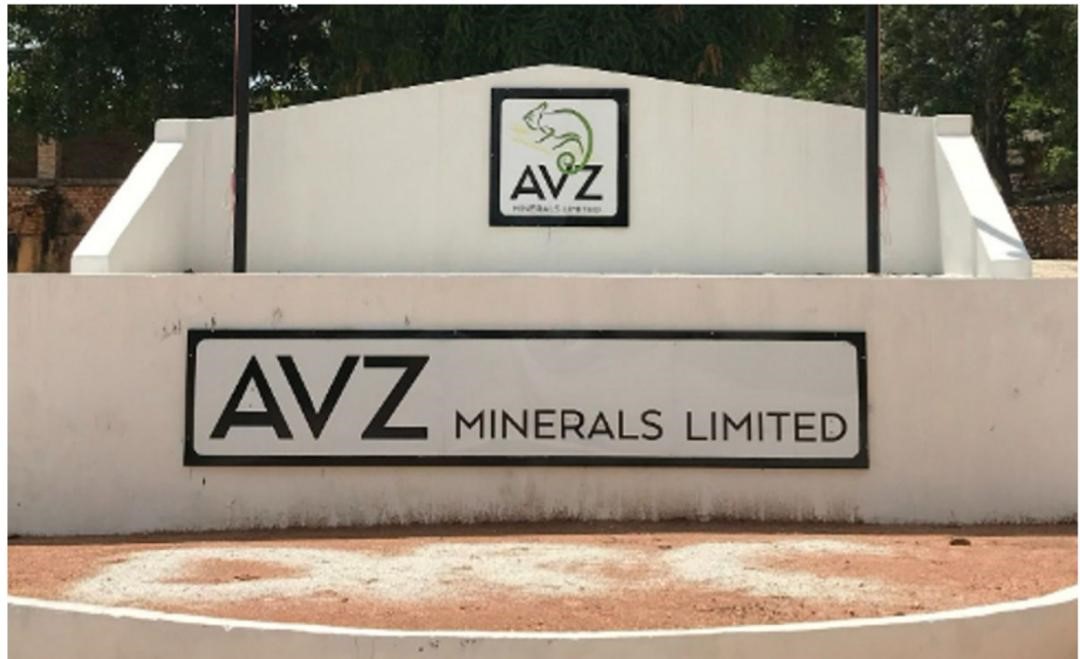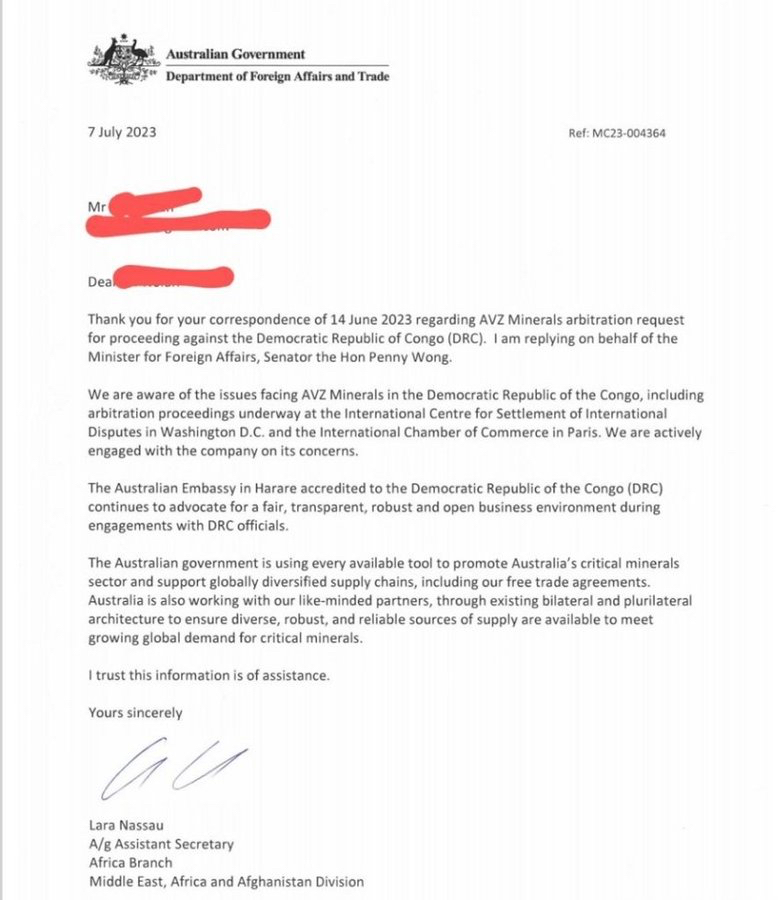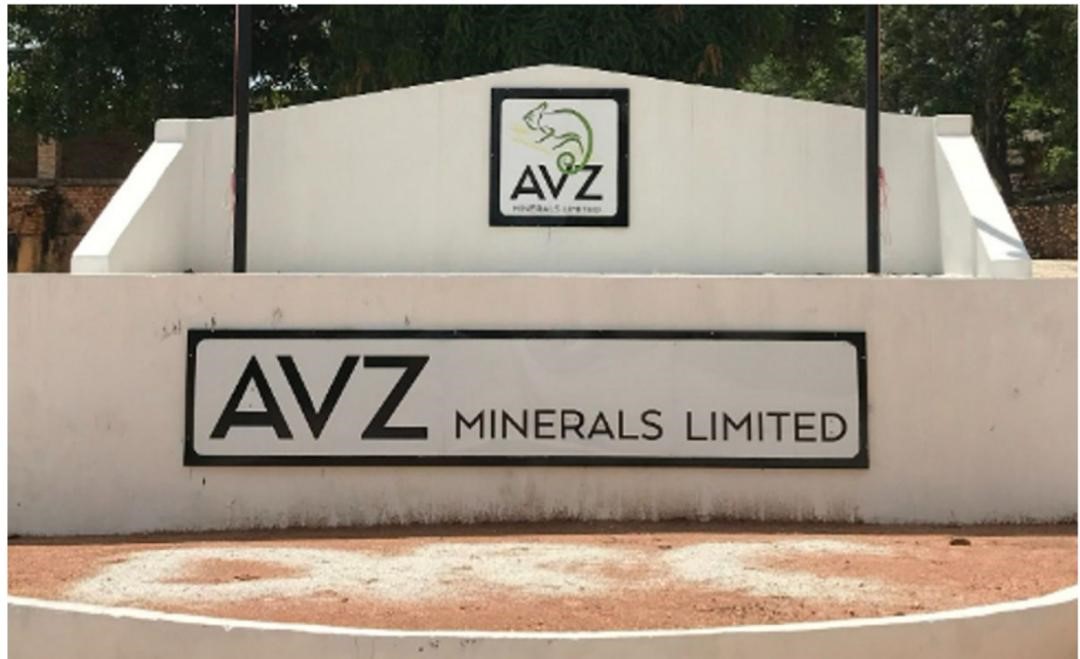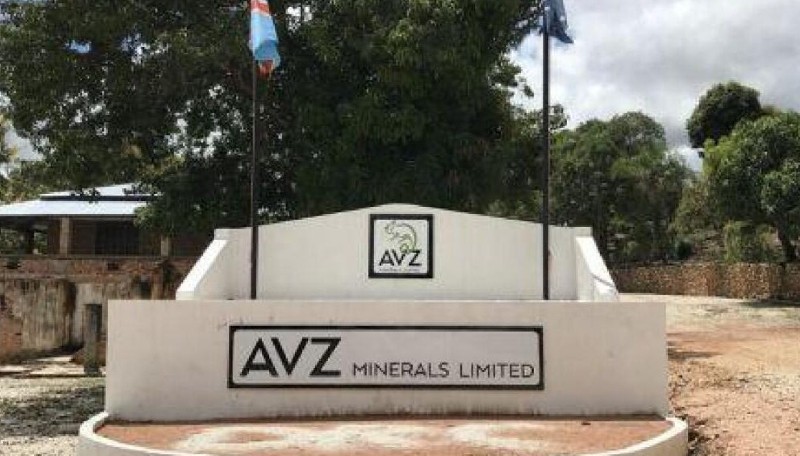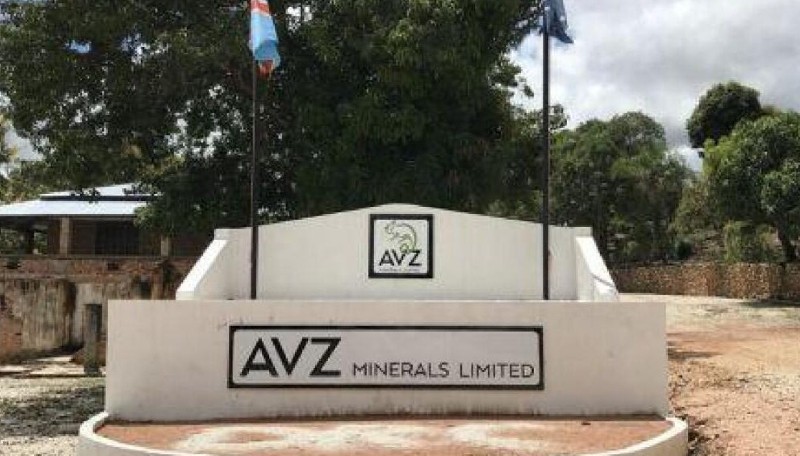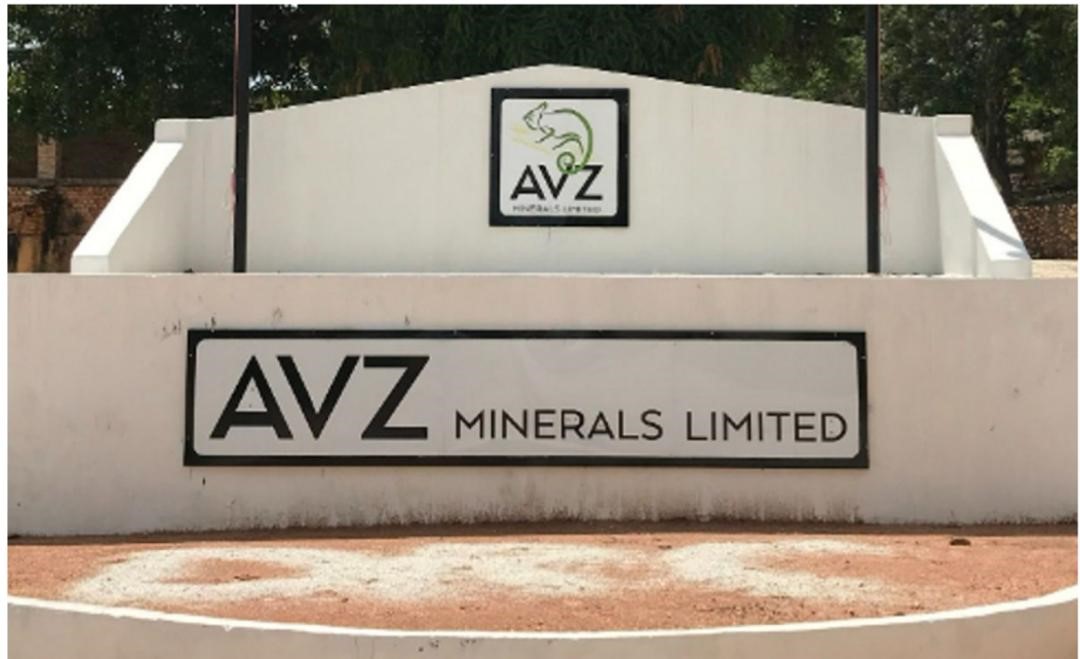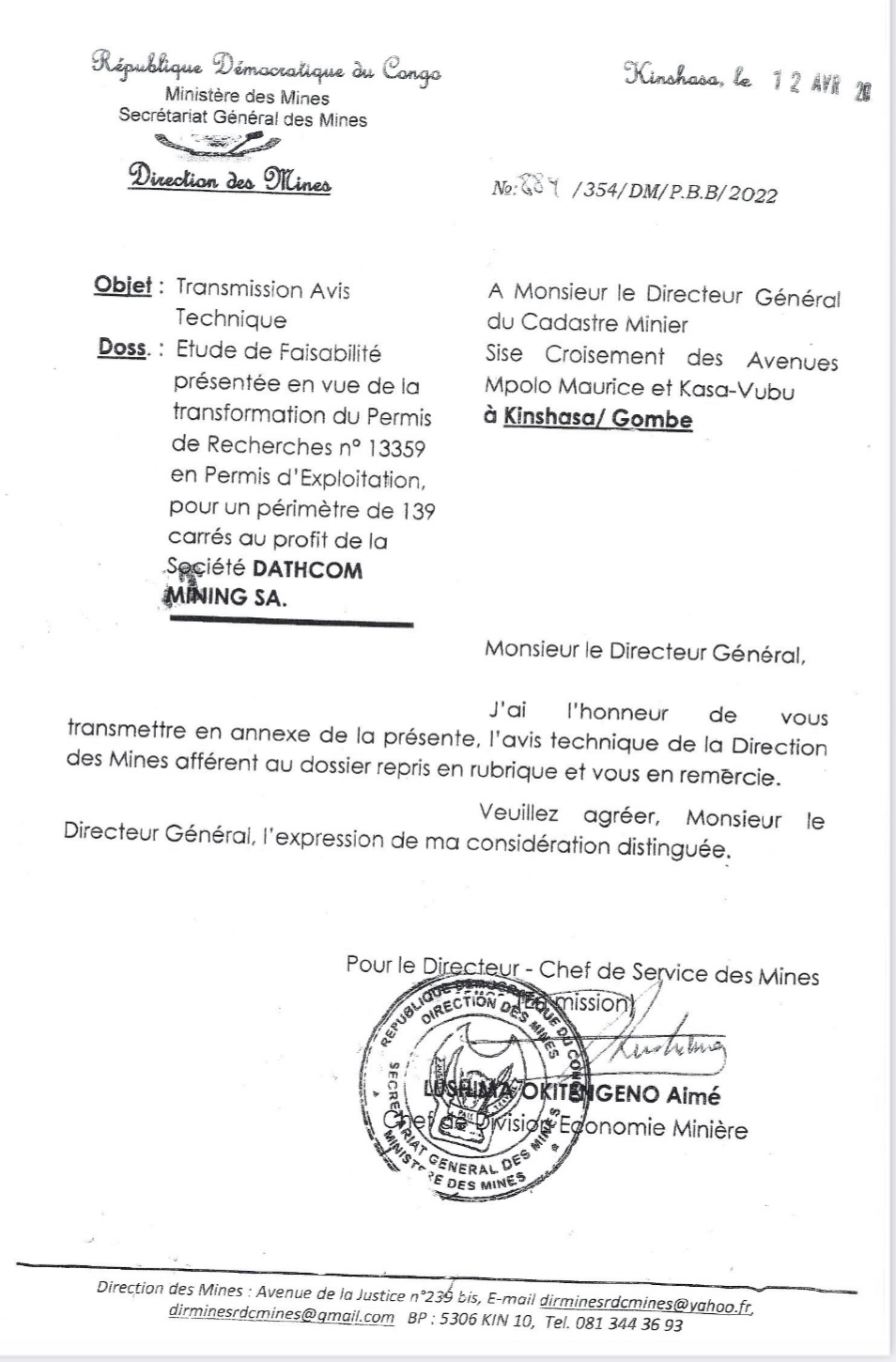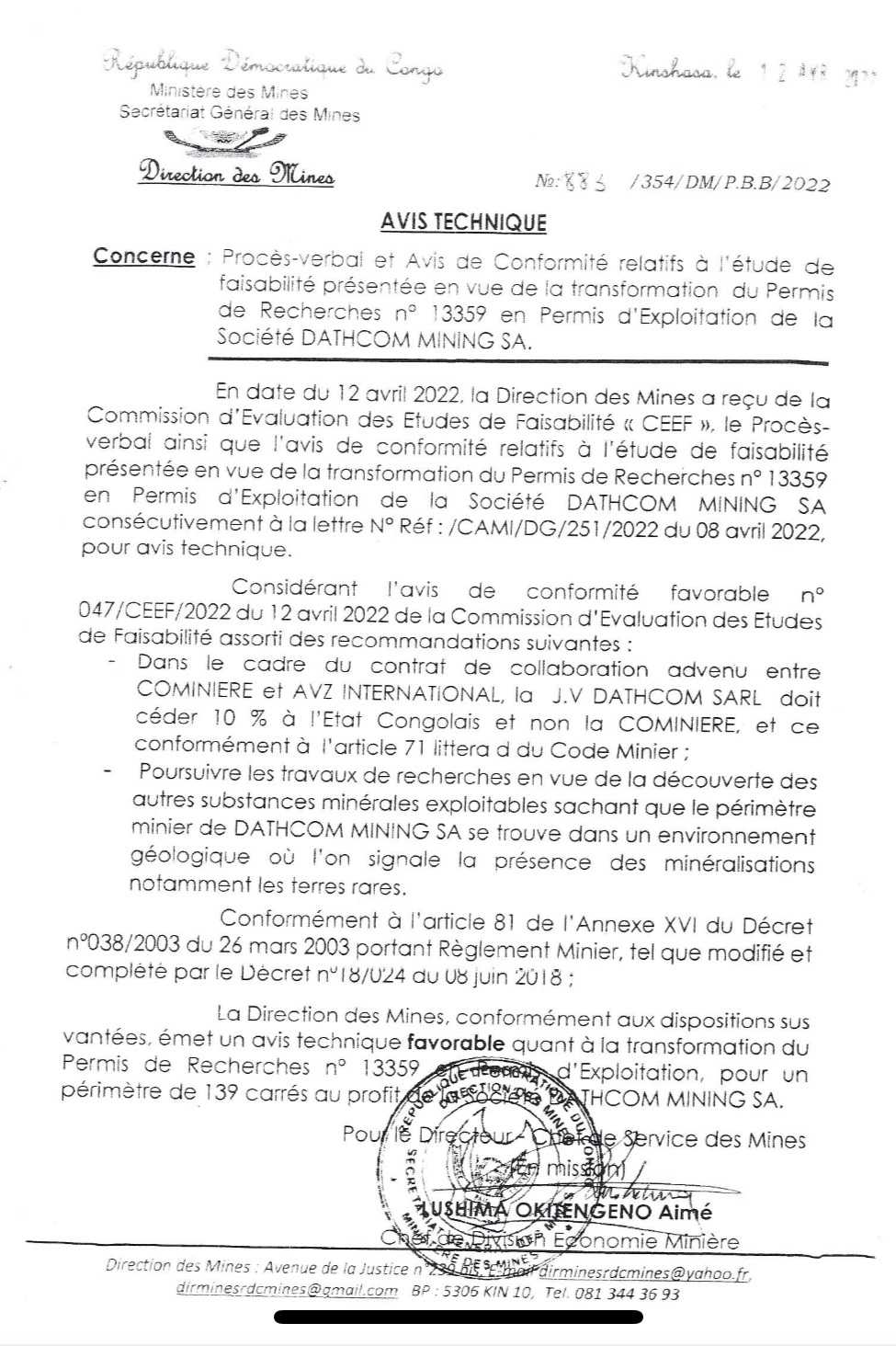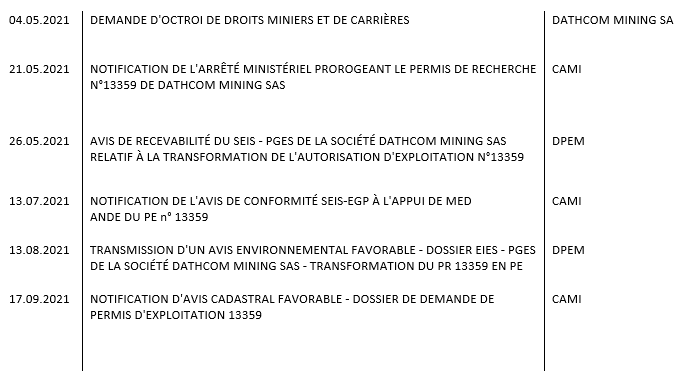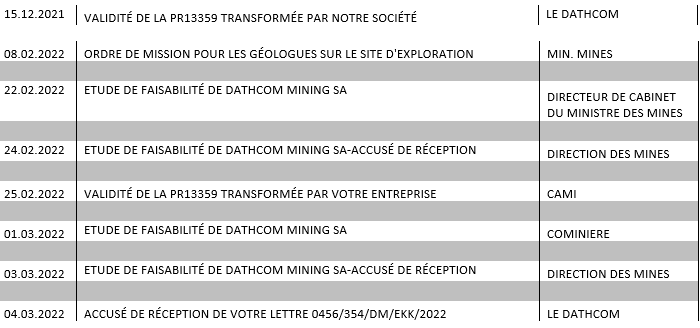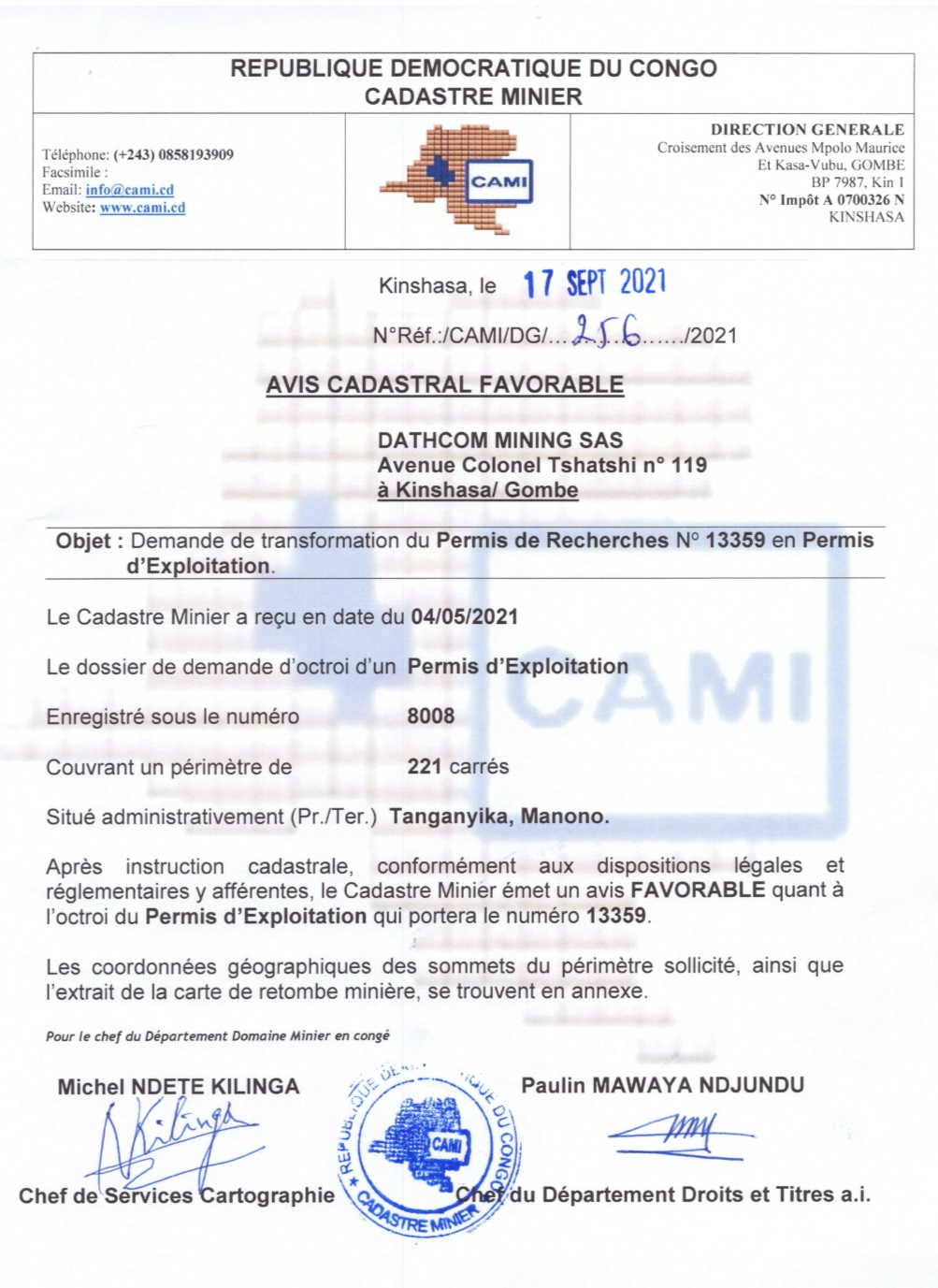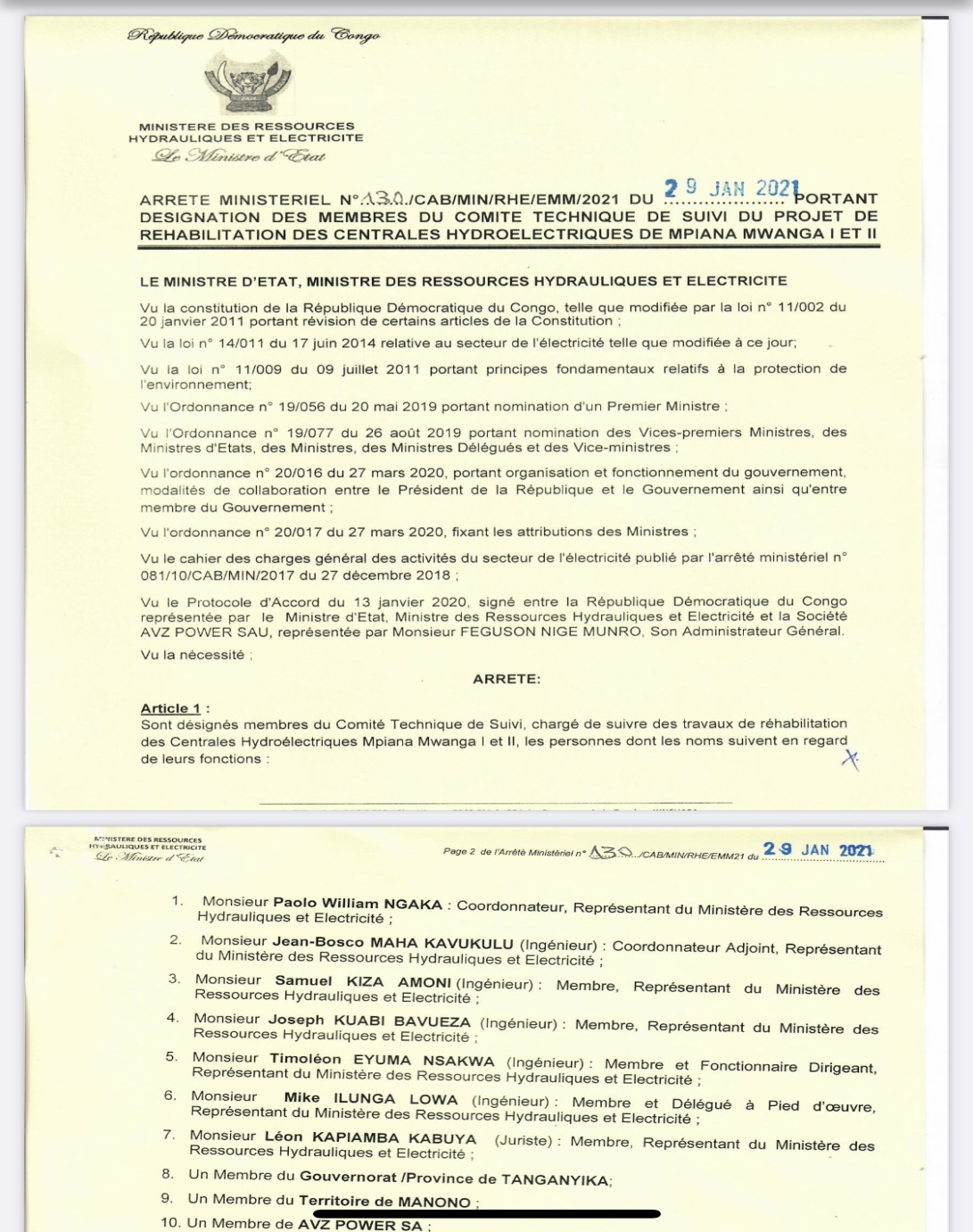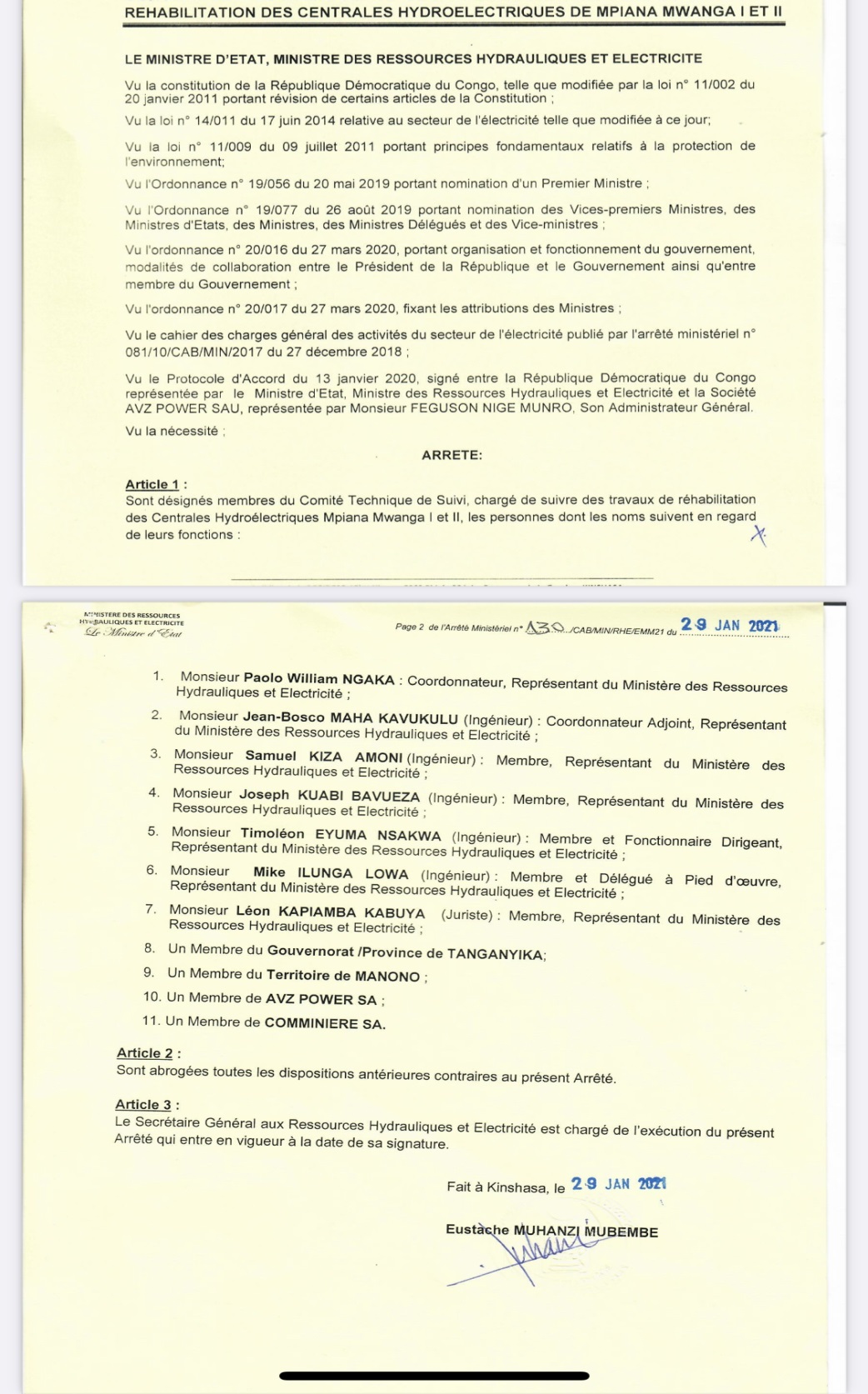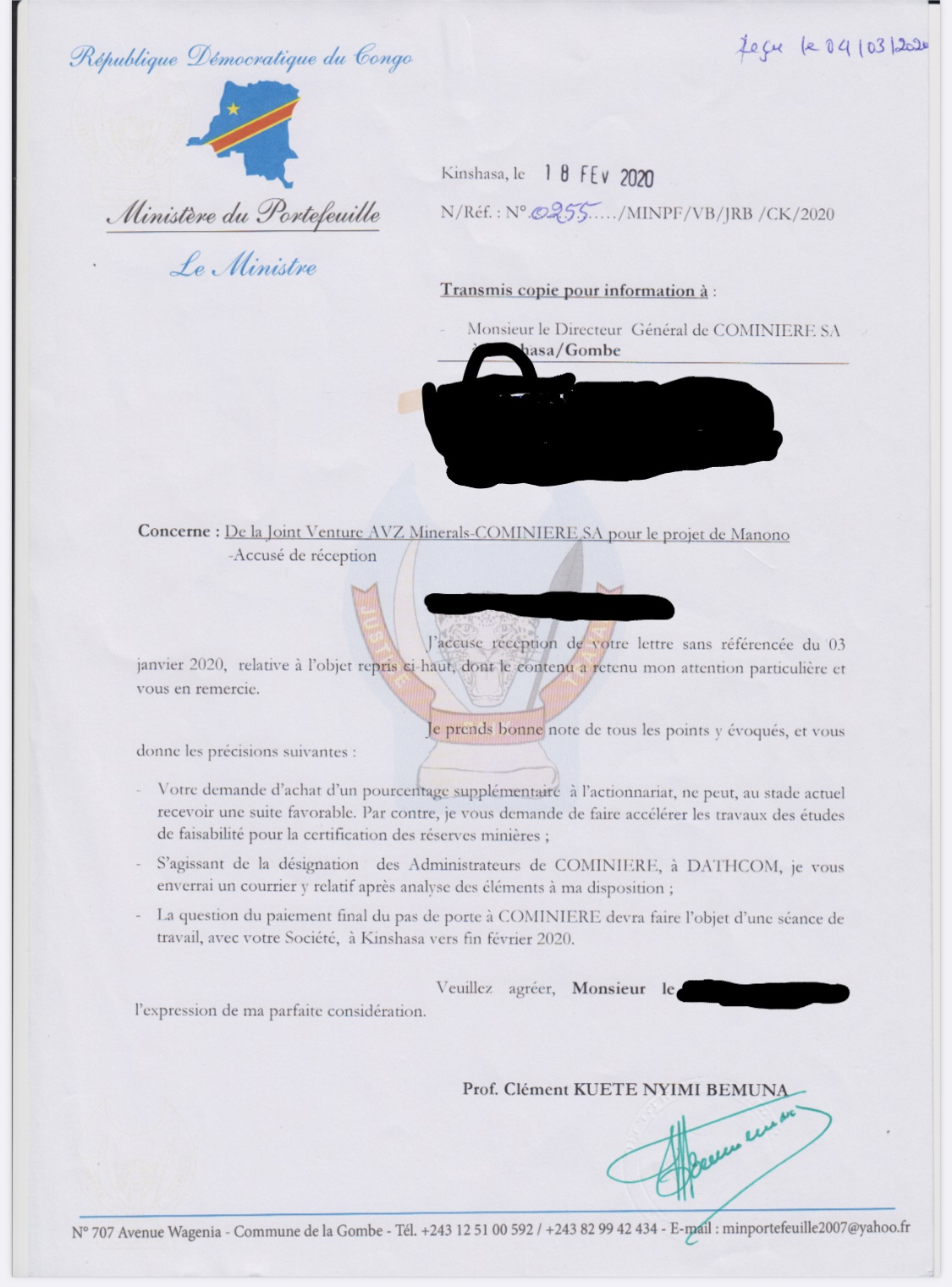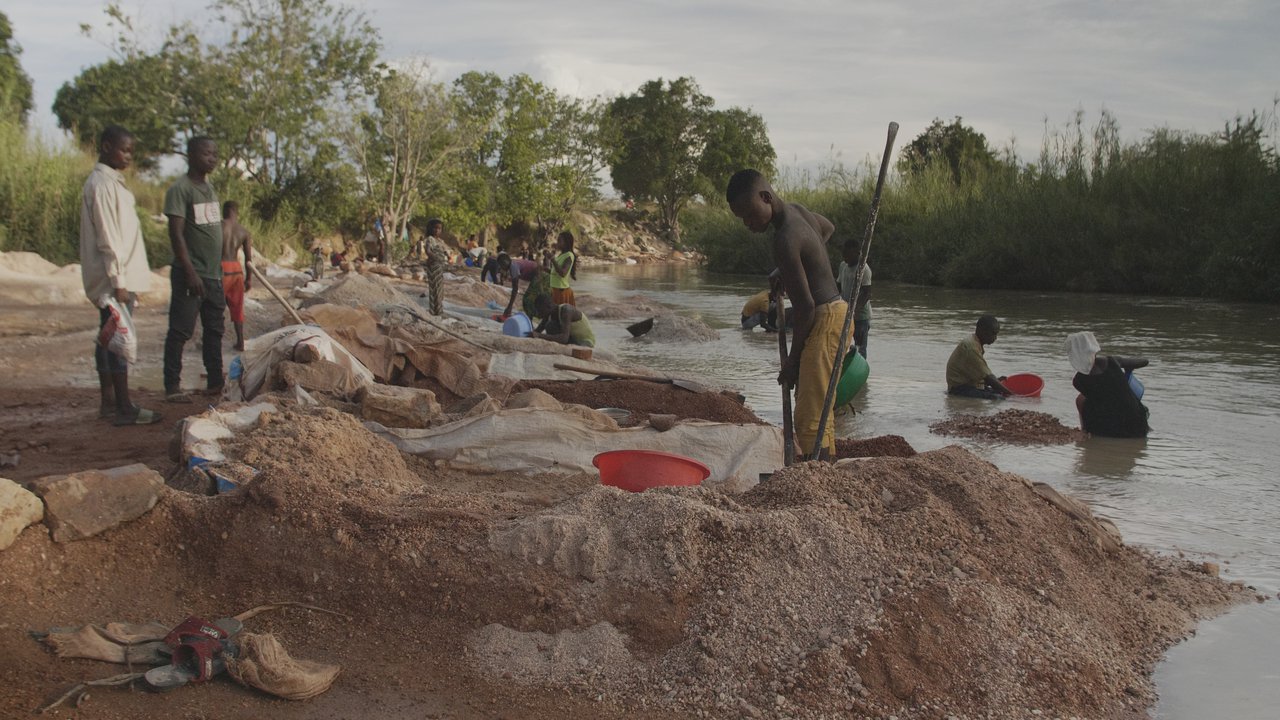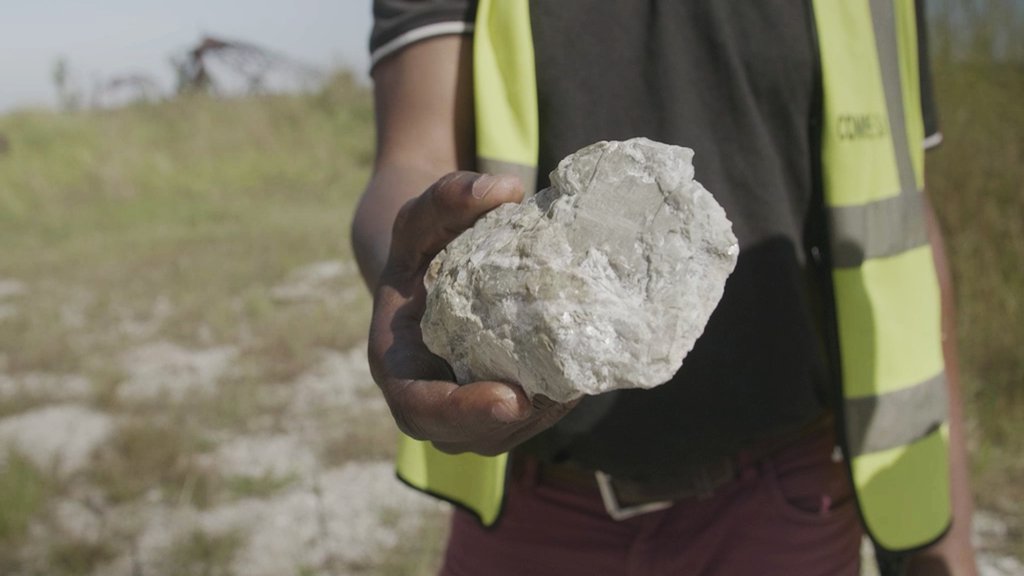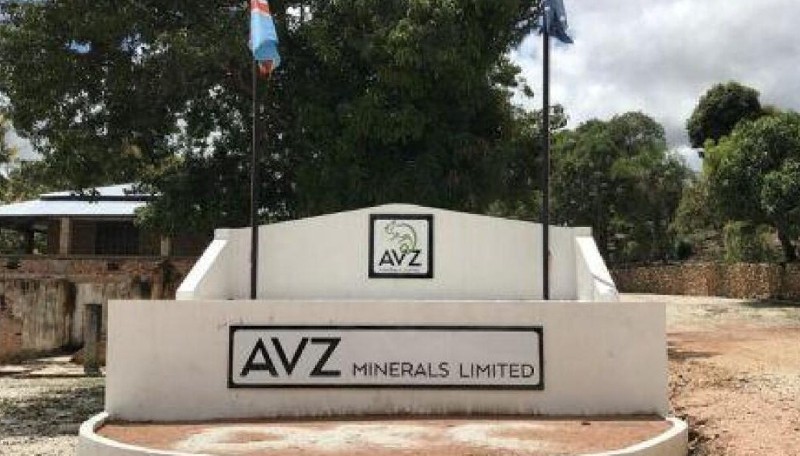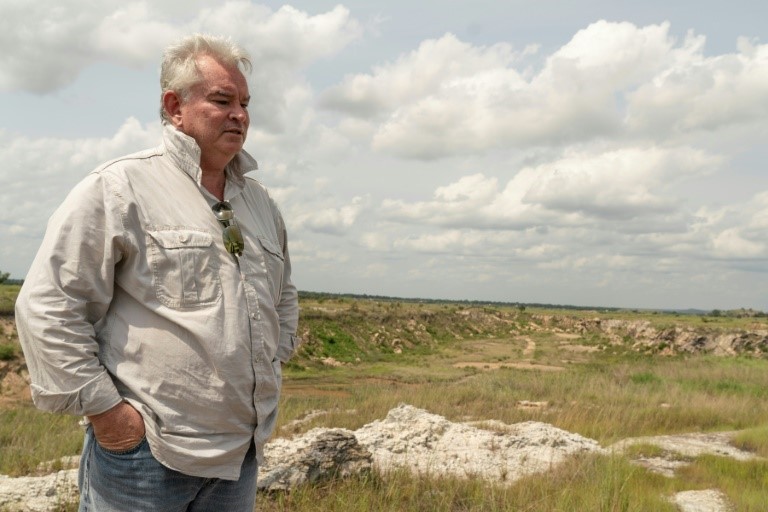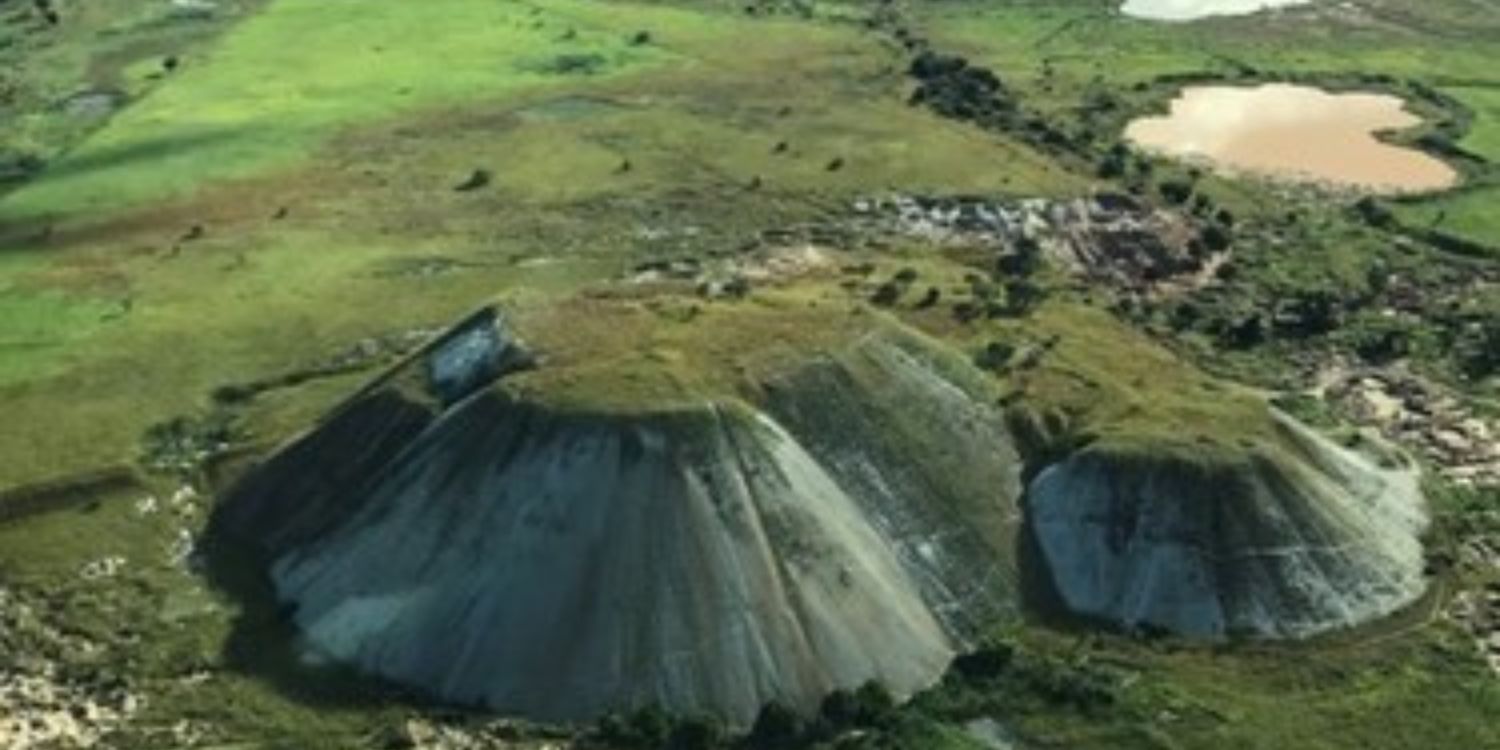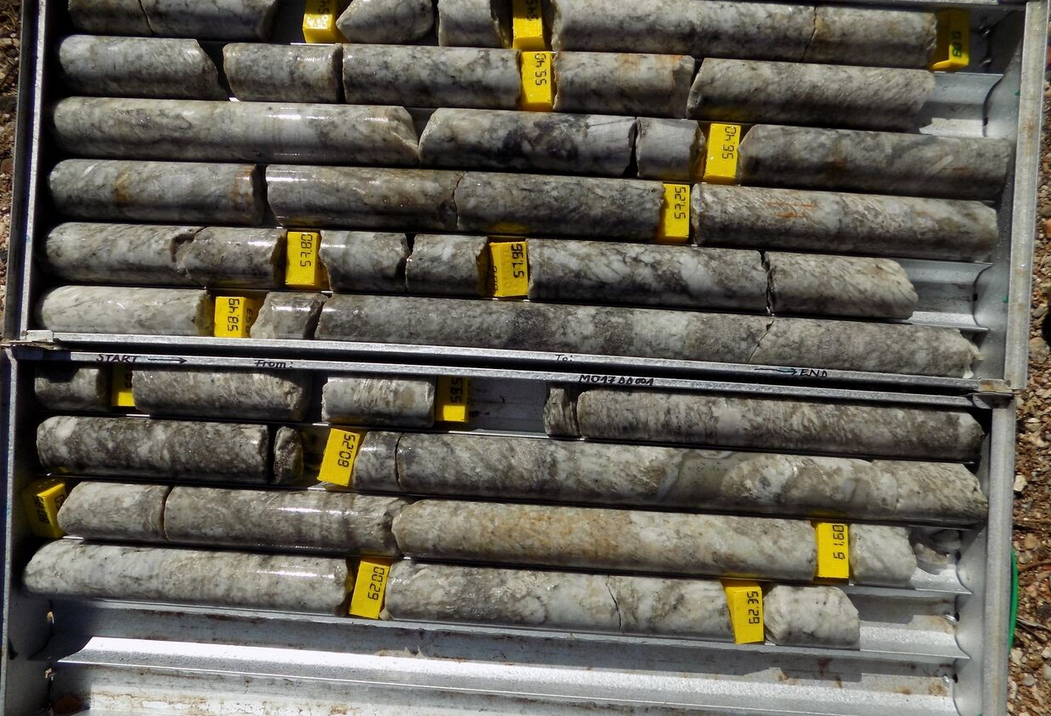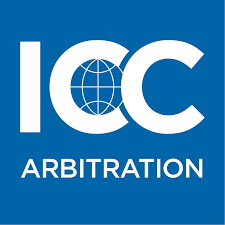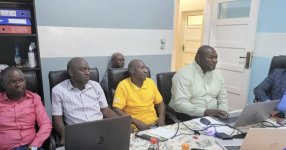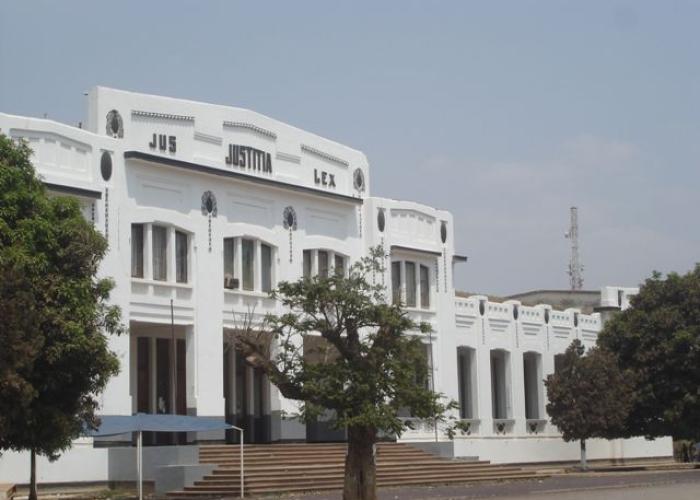19/03/2024
The curious case of AVZ, the DR Congo and the largest lithium deposit on the planet
Matt Birney
AVZ Minerals is at the center of a mining saga that would not be displaced in a Star Wars epic. Credit: File
The legal battle (if you can call it that) regarding AVZ Minerals' lithium mega-asement in the Democratic Republic of Congo (DRC) evokes images of the delusional scene of Cantina bars in Star Wars.
You know, the one where all the characters have two heads, or three arms, or a long neck, or scales on the back, or another crazy deformity - and they all have an arsenal of weapons to handle.
And it is far from an exaggeration to suggest that the different actors of the saga that besieged AVZ in its struggle to preserve its incredible Manono project, mostly held, would be at home in this famous Cantina Star Wars.
The strange and wonderful array of characters gathered in the DRC with a wild eye fixed on AVZ's brilliant Manono project is almost comical – or at least it could be if the grand prize wasn't the largest lithium accumulation on the planet.
This week, AVZ has accumulated a new series of favorable court decisions, she hopes, aimed at dispelling the disconcerting discomfort in which she finds herself at the center of her relationship with Manono. We'll talk about it later, but first, a little context.
Manono now has an almost biblical resource of 842 million tons containing 1.61 percent of lithium oxide, 709 parts per million of tin and 37 ppm of tantalum and contains 13.52 million tons of lithium oxide. The project has two geographically distinct deposits that could be roughly described as the south and north areas.
The southern zone is home to the key part of the project known as the Roche Dure deposit, which houses an incredible resource of 669 million tons containing 1.61 percent lithium oxide, 690 ppm tin and 33 ppm tantalum for a general total of 10.79 million tonnes of lithium oxide.
The northern area contains the Carrière de l'Este, Malata and Kahungwe deposits as well as the Colline Manono construction camp. The administrative centre, the central courtyard and the central farm are also located in the northern part of the project.
In particular, AVZ has already drilled a resource of 173 million tons at the Carrière de l'Este titrating 1.58 percent of lithium oxide, 785 ppm of tin and 52 ppm of tantalum. If it had not been overshadowed by the crazy deposit of Roche Dure, in the south, the resource of the Este Quarry would be revered in its own right as being world-class.
AVZ observed the second lithium boom coming and going from the margins of the ASX, where it has been suspended since May 2022 as it sought to bring its lightsaber to the Cantina-type forces that had begun to encircle its gigantic lithium project.
To understand the progress of the current legal dispute over Manono, we must first take a closer look at Dathcom – the joint venture (JV) that owns the Manono project – and its curious group of shareholders.
Manono was originally 100 percent owned by Cominiere, an organization belonging to the government of the DRC and created to give the government exposure to the mining sector. A few years ago, Cominiere concluded an agreement with the fast-language Chinese Cong Mao Huai, known in Congo as Simon Cong. Cong, who has lived in the DRC for years, has a colorful and controversial history and is involved in many areas.
Under the agreement with Cominiere, Cong's company Dathomir obtained an option to acquire 70 percent of Manono by doing certain things – including paying an “entry fee” of US$6 million ($9.15 million Australian dollars), working on the project, producing a final feasibility study (DFS) and more.
Not wanting to put his hand in his own pocket, Cong - through Dathomir - sold his paper contract with Cominiere to AVZ, listed on the ASX, in January 2017. Or at least most of it.
Dathomir of Cong would retain the rights on 10 percent of Manono and AVZ would have the right to gain 60 percent by taking over the majority of its obligations under the agreement with Cominerie. AVZ would also reimburse Cong approximately $1.4 million ($2.14 million) for previous expenses and would also give him 240 million of shares in the company.
AVZ then fulfilled its obligations and a three-man joint venture was created, AVZ holding 60 percent of Dathcom (Manono's owner), Cong's Dathomir getting recognition for his 10 percent free transportation and Cominiere retaining the remaining 30 percent.
A shareholders' agreement was concluded between the parties, giving AVZ the first right of refusal on any subsequent sale of Dathcom shares by minority shareholders, Dathomir or Comimeire – a right that AVZ decided not to exercise once when Comminiere then sold 5 percent of its 30 percent to Dathomir, bringing at this stage the stake in Dathcom to 60 percent for AVZ, 15 percent for Dathomir and 25 percent for Comminiere.
As is normal in shareholder agreements, the parties to the JV determined that in the event of a dispute, an agreed arbitrator would be appointed and in this case, the International Court of Arbitration of the Paris International Chamber of Commerce (ICC) was chosen.
Keeping an eye on the potentially massive investments that each partner of the joint venture would have to invest to build the Manono mine, Cong then sought to sell its 15% of Dathcom to AVZ. Two sales agreements were concluded and signed - one for 5 percent signed in 2019 by Dathomir and one for the remaining 10 percent signed in 2020.
Both agreements required a separate, non-refundable deposit of US$500,000 (U$762,640), which AVZ paid. They could then be adopted at AVZ's discretion after paying an additional $20 million ($30.5 million US$5 million US$7.62 million) for the 2019 agreement for the additional 5 percent and $15 million USD.88 million for the 2020 agreement and the additional 10 percent.
In total, AVZ would pay $21 million ($32 million Australian dollars) to take over an additional 15 percent of the project from Dathomir and Dathcom's share register would then be 75 percent for AVZ and 25 percent for Cominiere. The share transfer documents were signed by the parties and kept under escrow with a law firm in the DRC pending the final payment of $20 million by AVZ, which was then paid.
In April 2020, AVZ filed a DFS on the Manono project that showed a Herculean net present value (NPV) of $1 billion ($1.54 billion) after tax. In 2021, the project began to acquire international notoriety with a number of parties looking to take action. AVZ says Cong subsequently had serious remorse from the seller, given that he had previously signed binding agreements to sell 15 percent of the project to AVZ for $21 million, for a total value of the project of $140 million ($213.5 million).
In May 2021, Cong wrote to AVZ claiming to cancel the sale of Dathomir's 15% stake in Dathcom, invoking the need for an evaluation. AVZ said that a valuation was not a prerequisite for the 2019 and 2020 share sale agreements and made the final payment of US$20 million to Dathomir in August 2021, before the deadline.
Dathcom, led by AVZ Technical Director Graeme Johnston, then filed the signed transfer documents with the clerk of the RCCM, the official public register of shares in the DRC. A new stock certificate indicating the participation of 75 percent of AVZ was produced... and that's when things started to get a little crazy.
In an almost comical gesture, Cong donated the $20 million to AVZ's bank account. AVZ then sent him back, but this time the money was deposited into a lawyer's escrow account (in accordance with a court order obtained by AVZ) and Cong was asked to go get it - which he did not do.
Cong then tried to claim that the new certificate of shares issued by the RCCM was a forgery and, perhaps inexplicably, succeeded in convincing a criminal court in the DRC of his allegations. Perhaps even more inexplicable, the court agreed with Cong and Dathomir and sentenced Johnston and the employee responsible for creating new certificates of action to three years in prison and one year in prison, respectively – although, fortunately, the employee had his prison sentence suspended.
And the sting in the tail... believe it or not... was a fine of 50 million US dollars (76.26 million Australian dollars) payable by Dathcom, presumably to Cong. The fine was then reduced to $25 million ($38.13 million) on appeal, then suspended pending a new appeal by AVZ before the Supreme Court.
The court also ordered the destruction of the new certificate of actions attesting to the participation of 75 percent of AVZ. Fortunately, Johnston had already returned to Perth because of COVID and probably has no intention of returning to the DRC one day.
AVZ says the process was a farce. Neither Dathcom, Johnston, nor AVZ were informed of the legal action and neither of them appeared in court to bring a case. Further highlighting the far-fetted nature of the procedure, AVZ says that neither Dathcom nor Johnston were ever officially informed of the decision.
AVZ claims that the new stock certificate was indeed valid because it resulted from transfer agreements signed by Dathomir that were duly deposited after the payment of the final $20 million in the escrow account accessible by Cong.
Cong then pressed the nuclear button and took legal action to liquidate Dathcom, citing violations of the joint venture agreement - violations that, according to AVZ, are non-existent. Cong's decision to liquidate Dathcom is curious, given that his Dathomir claims to hold 15 percent of it.
In any case, AVZ claims that Cong violated Dathcom's shareholders' agreement and articles of association by not bringing the dispute before the ICC - the agreed determination body in the event of a shareholder dispute.
AVZ then brought an action before the ICC to prevent Cong from liquidating Dathcom and to ratify its purchase of Dathomir's 15 percent in Dathcom. This action is still ongoing and AVZ says it will use any favorable outcome from the ICC to try to reverse the decision of the DRC Criminal Court against Dathcom and Johnston.
As in all great epics, there is usually more than one dark force and this is certainly the case in this epic saga. Just as AVZ metaphorically barricaded the front door against Cong and Dathomir, its other minority partner in joint venture, Cominiere, also gathered forces at the back door.
While the conflict with Cong continued, Cominiere discreetly tried to sell 15 percent of its 25 percent stake in Dathcom to Chinese forces without giving AVZ its first right to refuse to buy these shares, in accordance with Dathcom's shareholders' agreement.
Chinese giant Zijin Mining and its subsidiary Jin Cheng Mining Company come into play. Rich Jin Cheng (read Zijin here) paid US$33.4 million (US$50.94 million) to Cominine and then claimed 15% of Dathcom - and by extension, 15% of the Manono lithium project.
AVZ then appealed to the CCI for a decision that Cominire had violated Dathcom's shareholders' agreement by denying AVZ its right of pre-emption to purchase these shares and that they were invalid.
After receiving Jin Cheng's money, Cominiere then very generously allocated US$6.8 million (US$10.37 million) out of the U.S.$33.4 million for
"operating needs (including commissions, fees and exceptional remuneration of anyone who would otherwise have contributed to the transaction). ".
It seems that it was payday for everyone present at the Cantina bar.
This little gem was only created when the General Inspectorate of Finance of the DRC government (yes, it has one) launched an investigation into Cominière. The IGF, as it is called, was responsible for determining whether Cominiere's actions in connection with the alleged sale of Dathcom's shares to Zijin's subsidiary, Jin Cheng, were appropriate and whether Cominiere's recent conduct had been lawfus, among other things.
It is best to read this IGF report with a glass of wine and a good meal.
Among his various conclusions is the determination that Cominiere acted in violation of its articles of association, in violation of the DRC mining code and that the sale of the shares to Jin Cheng contained certain "irregularities". Oh yes, and the IGF also found that the payment of $6.8 million to the crowd at the Cantina bar for fees and other items related to the sale of shares had been "inappropriately affected".
The IGF report is remarkable because it highlights Cominiere and its relations with the government of the DRC. Although, technically, Cominiere is an instrument of the government of the DRC, the IGF reports suggests that they may not be fully united at the hip, which bodes well for AVZ's possible objective of obtaining a mining permit from the government of the DRC for Manono.
Notably, the alleged sale of Cominiere shares to Jin Cheng for $33.4 million, or 15 percent of Manono, valued 100 percent of the project at just over $220 million ($335.56 million) – which would be good if AVZ and Dathcom had not yet presented a DFS showing the project's-tax VAN at just over $1 billion.
Obviously, the force is in the camp of Jin Cheng, who seems to have used an old Jedi trick to convince Cominiere of the miserable $220 million valuation for the project. By the way, it's hard to imagine that one of the clients of the Cantina bar will return the $6.8 million in fees and other things if the ICC decides that the sale of these shares by Cominiere to Jin Cheng was invalid – which it kind of did this week. – But more on that later.
Cominiere then pressed the nuclear button himself in order to explode the Dathcom mother ship. In one way, Cominere managed to convince a court in the DRC that the Dathcom JV had been dissolved and that as the original owner of the Manono buildings, they were to be returned to Cominiere.
AVZ states that it is impossible that the JV Dathcom has ever been dissolved and that Cominiere has no right to end it. In what seems to be a worrying trend, once again, AVZ and Dathcom were not involved in the Cominiere trial – or even informed.
Nevertheless, the court complacently claimed to award all of Manono's leases to Cominiere and the forces of the Cantina bar were once again at the top - at least that's what they thought.
In the fog of the celebrations, the well-armed ally of Cominière and Jin Cheng's parent company, Zijin (via one of its subsidiaries), was awarded the northern concessions that contain the fabulous lithium resource of 173 million tons. It will later be revealed that a subsidiary of Zijin would hold only 61 percent of the northern leases and that Cominire would have the rest.
But the most curious thing is that in October of last year, Zijin revealed that the payment of $33.4 million paid to Cominiere for 15 percent of Dathcom would be "transferred" to the JV vehicle that claims to own the northern part of Manono as payment for Zijin's 61 percent of this joint venture.
But what about Zijin's claim that he paid $33.4 million for 15 percent of Dathcom? Did Zijin see what was written on the wall and did he change course?
Perhaps the force is also with Zijin and that he has managed to foresee in one way or another the astonishing decision of the CCI announced by AVZ at the market this week that put a sword blow in the water in the alleged sale by Cominiere of 15 percent of Dathcom to Cheng Jin – well almost.
On March 15, the ICC's International Court of Arbitration decided that it would not hear a case brought by Jin Cheng.
This case alleged that AVZ (through its subsidiary AVZ International) was abusing its majority stake in Dathcom by refusing to recognize Jin Cheng's alleged participation in Dathcom. The ICC refused to hear the complaint on the grounds that Jin Cheng did not appear in Dathcom's share register and therefore had no recourse before the ICC, a dispute resolution body reserved for Dathcom's "shareholders".
Perhaps more specifically, the CCI made Jin Cheng bear the significant legal costs of AVZ, ordering him to reimburse the AVZ subsidiary 75,000 US dollars (114,400 Australian dollars) for its arbitration fees, 813,474 Australian dollars for defense costs and more than 3 million euros (5 Australian dollars). million) for other "legal costs".
AVZ indicates that the ICC will soon deal with its own substantive allegation that Cominiere violated its right of pre-emption to buy the shares that it said was sold to Jin Cheng, in addition to other unsavorable issues it alleges regarding the alleged sale of those shares.
Stay tuned for the second episode of this battle.
Meanwhile, AVZ has opened a second legal front in its epic struggle to keep Manono. Enter the IC-IRD, or the International Centre for Settlement of Investment Disputes.
The ISCR (not to be confused with the ICC) is a kind of tribunal in Washington DC that depends on the World Bank. It was created in 1966 to settle investment disputes between states and foreign nationals of other states and is included in most international investment treaties as well as in many laws and investment contracts. It is important to note that the DRC has been a member state of the ICIRD since 1970.
In June of last year, AVZ launched an action with IRCID to demand that the government of the DRC issue to Dathcom a mining permit for Manono – thus overtoing Cominiere's claim that she and Zijin have already shared the North and South profits of the project.
And now, it seems that the big wheels of justice could finally turn for AVZ on its second front. In January of this year, the IRCID tribunal issued a provisional decision ordering the DRC government to restore the southern part of Manono which contains the huge 669 million-ton lithium resource on behalf of Dathcom, of which AVZ still claims to own 75 percent.
The decision is fully enforceable and constitutes an interim decision to complete the entire arbitration process, the final decision being rendered when the IARC has been able to hear the arguments of all parties.
The decision does not include the northern part of Manono, which contains 173 million tonnes of lithium resources, nor much of the project's existing infrastructure. This part of the project would have been entrusted to the Zijin-Cominiere couple and the IARC was reluctant to deal with this part on a provisional basis, given the involvement of a third party (Zijin). However, it will always be in the last analysis.
The interim victory of AVZ follows another favorable decision made in December last year, this time by the ICC, which ordered the Cong of Dathomir to put his stick back in his backpack - at least for the moment. The ICC has issued an emergency injunction requiring Cong to abandon its legal action to liquidate Dathcom until the substantive issues between the parties can be heard and resolved.
In May of last year, the ICC also slapped Cominine by preventing it from taking further legal action or prosecution in connection with its alleged termination of the Dathcom JV until the substantive issues between the parties can be heard by the CCI. A penalty of €50,000 (AU$83,000) per day was imposed for good measure.
Fast forward until November last year and AVZ was again in front of the ICC, arguing that Comineer had ignored its orders and that an additional (and additional) daily fine of €50,000 had been imposed, now making things decidedly uncomfortable for Cominiere. This fine now amounts to more than €45 million ($74.74 million in Australian dollars).
It is interesting to note that at the November hearing, the ICC determined that Cominiere had "concealed" the fact that it had requested and obtained a court decision in the DRC regarding the alleged dissolution of Dathcom.
The great tragedy of this epic series is that AVZ and Dathcom have found an intergalactic ally with enough resources to finance all of the equity of the investments needed to build the Manono mine. The Chinese company Suzhou CATH Energy Technologies (CATH) is partly owned by the world's most prolific lithium battery manufacturer, Contemporary Amperex Technology (CATL), and has a real interest in building a mine and producing lithium.
As early as September 2021, CATH agreed to invest some US$240 million ($366.7 million Australian) to build the plant in exchange for 24 percent of the project, finally reducing the 75 percent share of AVZ to 51 percent, still controlling.
This would likely have covered the share of AVZ's equity necessary to build the project, which would have crowned the DRC as the country with the largest lithium mine in the world and would have significantly raised its status as a global mining jurisdiction.
AVZ says that CATH is still very committed and that both are now counting on favorable end results from both the ICC and ICIS - or alternatively, the government of the DRC, which could simply bring Cong and Cominiere to their knees and issue a mining permit directly to AVZ.
Whatever the result, the view from the cheap seats on the sidelines of this great blockbuster will be good.
Will the force win? Will the characters of the Cantina bar melt?
Or will the Republic come to the rescue of this lithium resource on the biblical scale and allow it to move safely into production?
AVZ gathers its strength well and now has a bag of favorable court decisions to its credit as it prepares for what will undoubtedly be an epic final episode that could well see the largest lithium deposit in the world catapulted into production - and who knows, maybe. it will coincide perfectly with the inevitable third lithium boom.
The fight over AVZ Minerals’ mega-lithium deposit in the DRC conjures up images of the whacky Cantina bar scene in Star Wars where all the characters have two heads or three arms and an armoury of weapons to wield. A recent court ruling, however, has reset the playing field in AVZ’s favour as...

www.businessnews.com.au

